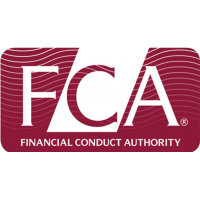
Of 90 firms that claimed independence, a total of eight did not not wholly meet the Financial Conduct Authority’s (FCA) requirements, it found.
These businesses have been told to either operate as restricted advice propositions, or make changes – in some cases very few – to keep their IFA label.
The FCA said the firms’ breaches did not merit enforcement action.
The study represented the second part of an FCA investigation into firms’ compliance with changes brought about following the RDR.
The regulator said it uncovered only minor problems with ‘independent’ and ‘restricted’ compliance.
It is also set to publish further good and bad practice guidance to help advisers identify whether they are working within the rules.
>> Watch: the FCA’s video on giving independent advice < <
How FCA carried out study
The FCA examined the advice models of a total of 113 firms, which were sent detailed questionnaires to complete.
From their responses, the FCA immediately identified two businesses that failed to meet its requirements for independence, it said.
Of a further 88 that claimed independence, the FCA, following further investigations, determined that six breached its rules.
However, an additional four cases remained unsolved as of mid-March, it added.
FCA director of long-term savings and pensions Nick Poyntz-Wright said: “Most firms are using the ‘independent’ tag correctly, which is important in helping consumers understand what service they are buying.
“But, for those firms who remain unsure, we are providing further help so that they can better understand the standards they need to meet.”
Clarification
The regulator has made clear that independent advisers have to be able and willing to advise clients on all retail investment products.
Cases where advisers effectively segmented clients according to the products they might be suitable for were not acting in the spirit of the RDR, the FCA said.
FCA technical specialist Rory Percival told Professional Adviser: “The independence requirement means that all of the individual advisers within a firm need to be willing and able to advise on all retail investment products.
“It is perfectly reasonable, if a more complex case comes along, for that adviser to get some support from a specialist, whether that’s internally or externally, but they still need to be able to advise on that product.
“If they are passing all of their, say, drawdown cases to another adviser, then they are not advising on the full range of retail investment products to meet the [independence] requirement.”
Not considering all options
Where firms went wrong, the FCA said, was when they were not willing and able to advise on all retail investment products, or were using a single platform and not considering other options that may have been suitable.
A third area was where firms were referring one client to other advisers routinely in a product area, whether internally or externally.
The FCA also said it had looked at whether sticking to the independence rules was more difficult for smaller firms, but it had “not found any reason why small firms aren’t able to comply with our independence rules”, said FCA head of investment advisers and platforms Clive Gordon.
“In fact, a lot of the examples of good practice which are contained in the report actually do come from small firms,” he added.
The FCA will publish parallel findings on firms’ disclosure of fees and status in April, before embarking on the third phase of its review in the second half of the year. This will again look at advisers’ status and their disclosure efforts.
















